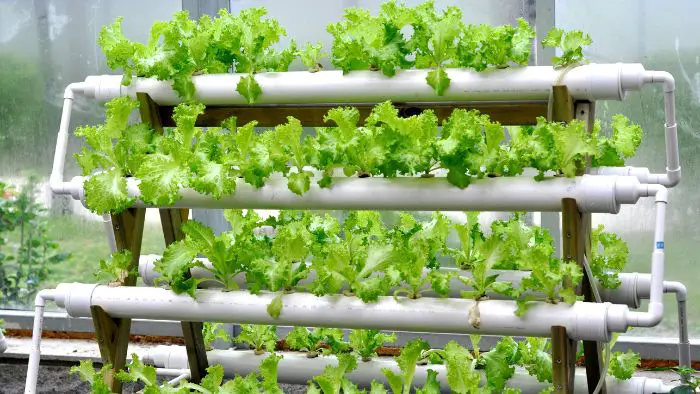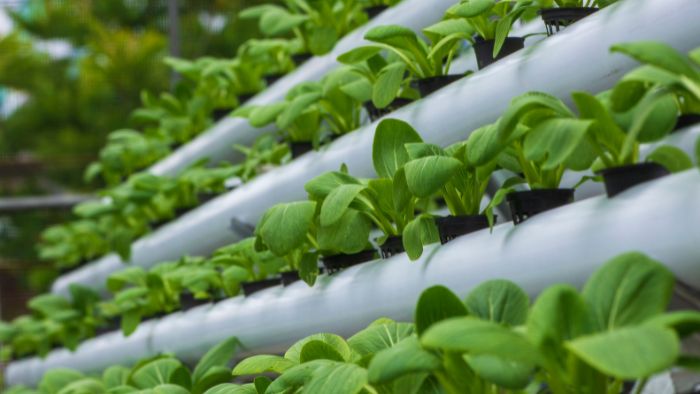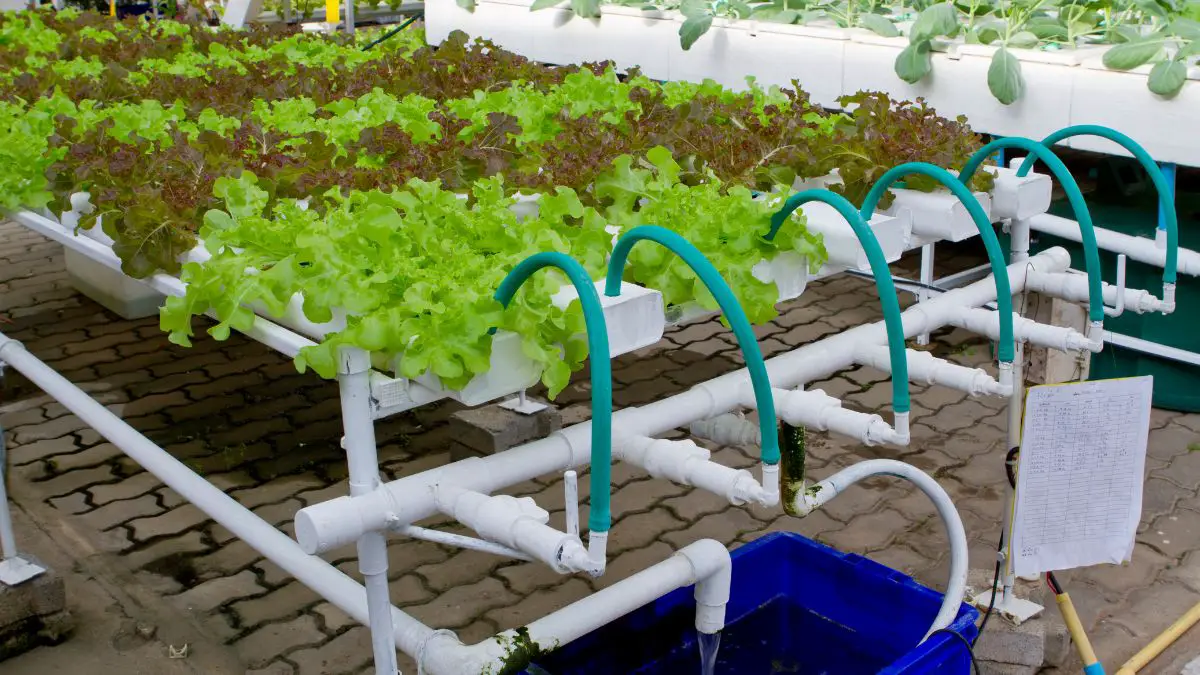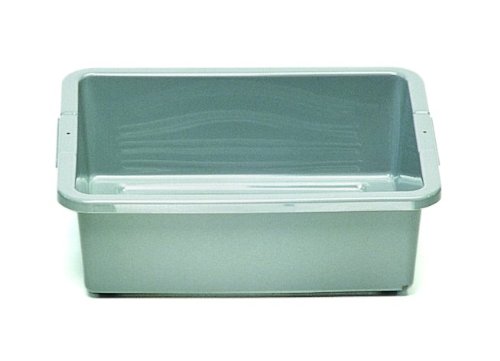Last Updated on August 26, 2022 by Guillermina
It is important to know and understand safe plastic for hydroponics. This is because plastic is extensively used in hydroponics and aquaponics, and it is therefore important to understand which ones are best suited and will not negatively affect the aquaponics system, as well as the humans who ultimately consume the products. This article gives you the top 6 safe plastic for hydroponics, lets’s get right into it
There are some nasty chemicals present in plastics. These chemicals, known as plasticizers, are added to the plastic during their production and can leach into the water over time. They may also end up in the food that the water is used to grow, presenting a health risk to consumers. This is not ideal and needs to be remedied. To help with this remedying, let’s take a look at all you need to know about safe plastic for hydroponics.
The Plastic Bottle Institute of the Society of the Plastics Industry uses a system to label or identify plastic types. The institute used a triangle made of “chasing arrows”, and inside this triangle is a number that identifies the plastic type.
Types Of Plastic
The plastic types and numbers are as such:
- PET (PETE), polyethylene terephthalate
- HDPE, high-density polyethylene
- PVC, polyvinyl chloride
- LDPE, low-density polyethylene
- PP, polypropylene
- PS, polystyrene
- Other plastic types
You can read more about the different components and uses of these plastic types.

Properties Of Good Plastic For Hydroponics
Safe plastic for hydroponics would be the one or ones that do not leach any chemicals that may be associated with cancer-causing or brain disrupting effects.
Damage to plastics in hydroponics systems is often due to exposure to ultraviolet (UV) light and sunlight. This causes the plastic to disintegrate over time, causing the chemical components to leach into the water. A safe plastic for hydroponics, therefore, needs to be able to withstand this damage caused by light.
Because hydroponics grows food, all the components including the type or grade of plastic used must be BPA-free and food safe. These components do not leach any contaminants into the water supply.
List Of Top 6 Safe Plastic For Hydroponics
Several plastic types are safe for hydroponics. In the following list, we break down each commonly used plastic in hydroponics and why it is considered safe.
1. Polyvinyl chloride – PVC
PVC is one of the most commonly used plastics in hydroponics. This is due to its low cost and ease of use. It is also readily accessible in most hardware or piping stores. As long as the grade of PVC used (especially for piping) is BPA-free, this plastic is perfectly safe for hydroponics. This material is also strong and durable, making it one of the favorites for aquaponics systems use.

2. Chlorinated Polyvinyl Chloride – CPVC
This material has the same basic components as PVC, except that it is chlorinated. This version of PVC can tolerate a wide range of environmental conditions such as temperature, pressure and chemical exposure. These properties make it suitable for both hot and cold water conditions. It has a great ability to bend, shape and form different shapes, making it suitable for a variety of uses.
3. Polyethylene Terephthalate – PET
This is another commonly used plastic in aquaponics. It is the same material that is used in soda bottles, other packaging materials and sometimes clothes. It is a food-safe plastic and therefore safe for hydroponics.
4. Cross-Linked Polyethylene – PEP
PEP was created about a century ago as a replacement for metal pipes. It is now common to find it being used in hydroponics and aquaponics systems. It is commonly used for piping and growing sites. There are however safe grades of this plastic that should be used. You must check with the manufacturer if the type you are using is safe. Another positive to this material is that it can be recycled once the cross-links have degraded.
5. High-Density Polyethylene – HDPE
HDPE is an environmentally friendly plastic that is much easier to recycle compared to other types commonly used in hydroponics. This quality as well as its durability, resistance to regular wear and tear by chemicals, tolerance to high temperatures and safety make it a suitable plastic to use in hydroponics.
6. Polypropylene – PP
Polypropylene is the last plastic on our list that is considered safe for use in hydroponics. During the manufacturing of this plastic however, a dangerous process is caused. After the manufacturing process, it is perfectly safe to use in hydroponics. This plastic must be disposed of safely when no longer in use.
Conclusion
There you have it. The top 6 safe plastic for hydroponics. These can be purchased from your local piping store or hardware. They can be used for DIY projects as well as larger, commercial projects. You can read up a bit more on this as well as other plastics that are safe for hydroponics use, and add your own to this list. We hope this list gives you a starting point so that you know the components to look for when you start shopping around for your materials.
If you enjoyed this article, please share and feel free to ask any questions should you have them.
FAQs
Is PVC safe for hydroponics?
PVC is one of the most commonly used plastics in hydroponics. It is used for piping, tanks and other functions. This is because it is BPA-free and is considered food safe. There are however different types of PVC so it is important to make sure that the type you use is food safe.
Is polypropylene safe for aquaponics?
Yes, polypropylene is considered a safe plastic for use in aquaponics. It is approved for use in both indoor and outdoor settings. It is very resilient and can withstand damage from UV light, making it durable and safe for use in hydroponics and aquaponics.
Can ABS be used for hydroponics?
ABS is unsafe for use in hydroponics pipes because it contains Bisphenol-A (BPA). Safe plastic for use in hydroponics must be BPA-free as this compound can have detrimental health effects. Due to this, it has been banned for use in the making of other products like baby bottles and others used in the food industry.
Can you use Styrofoam for hydroponics?
Yes, you can safely use Styrofoam in hydroponics because it does not leach any toxic substances into the water. It is also hardy and can withstand extreme weather conditions without disintegrating, making is safe for long term use in these systems.

An aquaculture specialist and freelance writer. Passionate about anything sustainable living, such as growing your own food, and if you can do it in conjunction with fish farming, even better! I currently work as an aquaculture researcher where I can expand and share my knowledge and skills on aquaculture, crop farming and adding value to wastewater by using it to grow food products. I enjoy reading and learning as much as possible, and writing is another avenue for me to share the knowledge I gain with others. I want my writing to inspire people to try their hand at gardening, whether indoors or outdoors. You can even start by keeping a few houseplants indoors to help you gain a bit of confidence if you need to.



